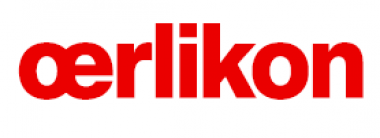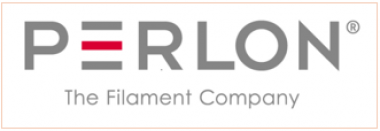Autoneum: Corona-related slump in revenue – bottom point overcome
The coronavirus pandemic and its massive impact on the automotive industry led to an un-precedented market slump in the first half of 2020 and a corresponding revenue decline at Autoneum. Revenue in local currencies fell by –32.7% compared to the prior-year period, and in Swiss francs by –36.8% to CHF 730.6 million. The turnaround program for the North American sites made further progress in the first six months and is showing the targeted results. However, they were clearly overcompensated by the massive impact of the corona-virus crisis, which led to a negative net result of CHF –54.9 million despite comprehensive cost flexibilization measures.
Like the entire automobile industry, Autoneum was massively impacted by the effects of the corona-virus pandemic in the first half of the year. The temporary plant closures at almost all customers in every region, especially in the second quarter of the year, not only led to an unprecedented market collapse, but also to a production stop at all 55 Autoneum sites. Starting in February in China and one month later in all other regions, vehicle manufacturers temporarily shut down production completely. The corresponding massive drop in global vehicle production led to a slump in revenue at Autoneum of –32.7% in local currencies. This reflects the development of the market in the first half of 2020, which contracted by –33.2% year-on-year. Revenue in Swiss francs at Autoneum fell by –36.8% to CHF 730.6 million (prior-year period: CHF 1 156.1 million). Revenue development in all Business Groups outperformed the respective markets, particularly in Asia and the SAMEA (South America, Middle East and Africa) region.
Like the entire automobile industry, Autoneum was massively impacted by the effects of the corona-virus pandemic in the first half of the year. The temporary plant closures at almost all customers in every region, especially in the second quarter of the year, not only led to an unprecedented market collapse, but also to a production stop at all 55 Autoneum sites. Starting in February in China and one month later in all other regions, vehicle manufacturers temporarily shut down production com-pletely. The corresponding massive drop in global vehicle production led to a slump in revenue at Autoneum of –32.7% in local currencies. This reflects the development of the market in the first half of 2020, which contracted by –33.2% year-on-year. Revenue in Swiss francs at Autoneum fell by –36.8% to CHF 730.6 million (prior-year period: CHF 1 156.1 million). Revenue development in all Business Groups outperformed the respective markets, particularly in Asia and the SAMEA (South America, Middle East and Africa) region.
Autoneum promptly responded to the pandemic-related market slump by adopting extensive cost-cutting measures in all regions. These include the reduction of employee costs by, among other things, adjusting time accounts, introducing short-time work at eligible locations and temporary layoffs as well as headcount reduction, mainly among temporary workers. In addition, operating expenditures were limited to the absolutely necessary. The investment volume for 2020, already reduced from previous years, was downsized even further. Autoneum continues to benefit in this regard from the high level of investments undertaken in recent years.
Although the coronavirus crisis and the measures taken to contain it dominated Autoneum’s course of business in the first half of 2020, the Company achieved necessary operational and financial im-provements during this period. The comprehensive turnaround program for the North American sites made further progress and is on track. Efficiency improvements already achieved there had a posi-tive effect on the figures of the first half-year, but were significantly overcompensated by the substan-tial impact of the COVID-19 crisis. Savings and cost flexibilization measures taken immediately and implemented worldwide in view of the revenue loss could not offset the ongoing, capacity-related fixed costs. This led at the Group level to a negative EBIT of CHF –31.8 million (prior-year period: CHF 16.4 million), which equates to an EBIT margin of –4.4% (prior-year period: 1.4%). The net result decreased because of the severe revenue shortfall to CHF –54.9 million (prior-year period: CHF –6.0 million).
Outlook
For 2020 Autoneum expects revenue to develop at market level. Although customers’ production volumes should increase again in the second half of 2020 compared with the first semester, latest fore-casts indicate that they will remain clearly below the level of the second half of 2019. Immediately implemented and ongoing cost reduction measures as well as further operational optimizations also within the turnaround program in North America will lead to improvements in the second half of the year. Due to the current uncertainties, a reliable statement on the net result for the full year 2020 thus cannot be made. With regard to the mid-term targets, a recovery of the profitability level is expected, but it will largely depend on the market development.
Autoneum Management AG






















